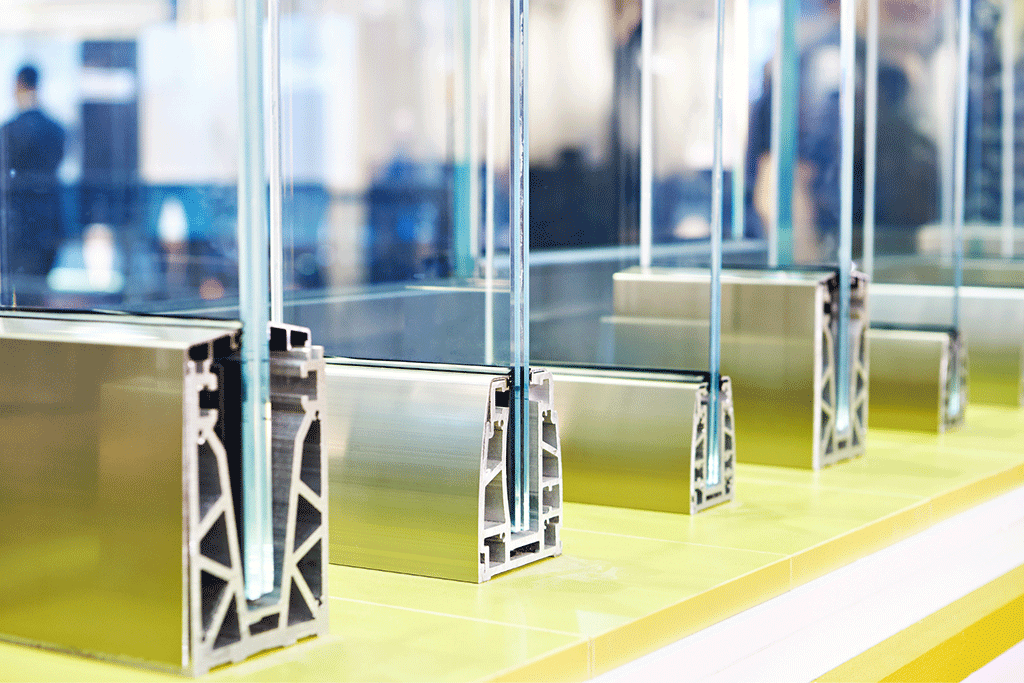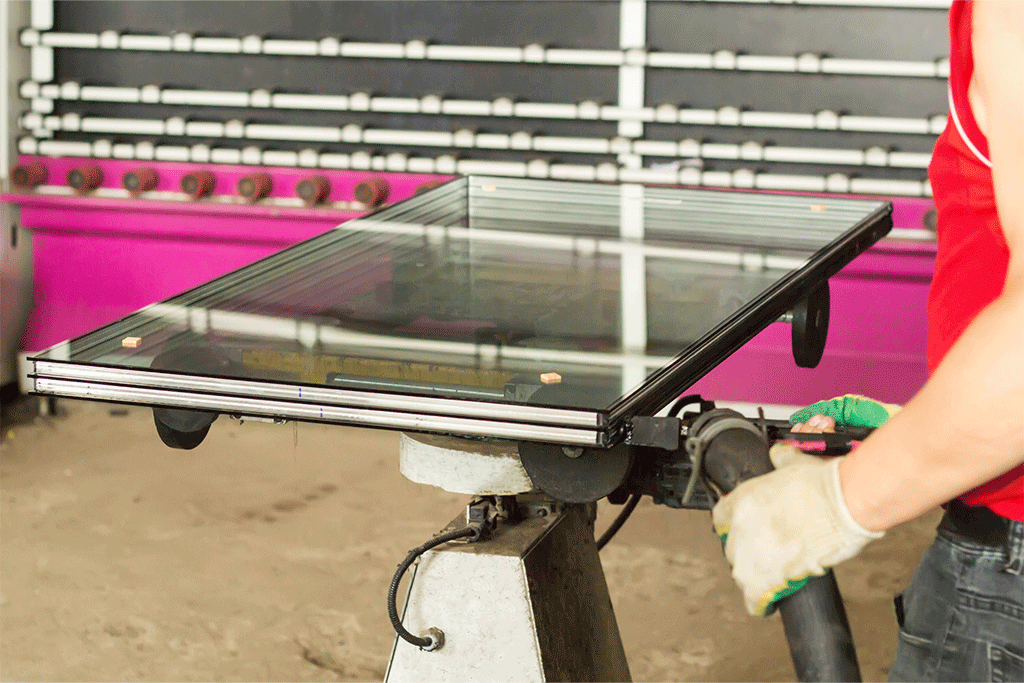A Comprehensive Guide to Insulated Glass Windows
Oct 17 2023 Posted By Ontario Window Reviews

When buying new windows, learning about the specific elements that go into the manufacturing process can seem overwhelming. Nevertheless, it’s extremely important that you become familiar with these ins and outs as they determine quality, efficiency, and long-term value.
Gone are the days of single-pane windows; now, insulated glass windows are the standard, and they have the potential to transform your living or working environment in more ways than one.
From the basics of insulation and energy efficiency to the latest technological advancements, we’ll cover it all. Understanding the advantages, design options, and maintenance requirements of insulated glass windows will empower you to make choices that are not just aesthetically pleasing but also sustainable, cost-effective, and comfortable for years to come.
Let’s get started!
What Are Insulated Glass Windows?
Insulated glass windows, also known as double glazing or double-pane windows, consist of two or more glass panes separated by a space filled with air or a specialized gas.
Insulating glass windows reduces heat transfer, regulates indoor temperatures, and adds insulation to buildings. The combined effect of insulated panels limits heat transfer and noise, providing a more comfortable home environment.

Components of Insulated Glass Units (IGUs)
The primary components of an IGU typically include:
- Glass panes: IGUs consist of two or more glass panes that vary in thickness and type (i.e. laminated or tempered glass) and are separated by a spacer.
- Spacer: The spacer bar is a thin metal or non-metal strip placed between the glass panes to maintain a uniform gap or airspace.
- Airspace or gas fill: The space between the glass panes is either left as an air gap or filled with a specialized gas, such as argon or krypton.
- Desiccant: A drying agent that removes humidity and moisture between panes.
- Sealant: The edges of the glass panes and the spacer bar are sealed with durable, airtight sealant, typically made of butyl rubber or silicone. This sealant helps maintain the integrity of the unit by preventing air and moisture infiltration.
Types of Glass Window Insulation
1. Air
Insulated glass windows may be filled with air to improve energy efficiency. This type is often the most affordable option because its readily available. While it’s not as effective as some other gases, it still offers improved insulation compared to single-pane windows.
2. Argon Gas
Manufacturers use argon—a noble gas—to fill in the cavities of the insulated glass window panels for enhanced thermal performance. Argon gas is an excellent insulator because of its low thermal conductivity (argon has a rating of 0.0160 vs. air’s rating of 0.0240). A lower value represents a slower thermal transmission, preventing heat from escaping quickly. Argon gas is a popular choice for residential windows.
3. Krypton
Double-pane windows with narrower gaps between panes use krypton gas as their insulator because it performs well in tight spaces. Compared to argon, krypton gas has a lower thermal conductivity value of 0.0093, however, this comes at a price.
4. Xenon
Among the noble gases for insulated glass windows, xenon ranks the most effective and is considered a high-end material. Xenon is used in specialty IGUs where the highest levels of energy efficiency are required.
5. Vacuum Layer
In some advanced IGUs, a vacuum layer replaces the traditional gas fill. This means the space between the glass panes is entirely evacuated, creating a vacuum. Vacuum-insulated windows provide exceptional thermal insulation because there is no gas to conduct heat. They are especially effective in extreme cold climates or when maximum energy efficiency is a priority.

Pros and Cons of Insulated Glass Windows
While you’re unlikely to find many manufacturers still selling single-pane windows, that doesn’t mean insulated glass window panels are perfect. Let’s look at the advantages and disadvantages of this investment.
Advantages:
Enhanced Energy Efficiency
Noble gases have high densities and low thermal conductivity, effectively reducing heat loss compared to non-insulated windows. This results in reduced energy costs since your HVAC systems don’t have to work as hard.
Safe & Durable
Insulated glass windows offer additional strength and protection since you can customize the panes with laminated or tempered glass. These durable options are more challenging to break, keeping you and your family safe.
Reduces Noise Pollution
Having two or more glass panels improves the overall thickness of your window, creating a sound barrier that limits harmful outside noise. As such, expect to have a quieter and more peaceful indoor environment.
Longevity and Reduced Maintenance
With proper care, insulated windows can have a longer lifespan compared to single-pane windows. They require less maintenance and are less susceptible to issues like fogging and condensation between the panes.
Disadvantages:
High Upfront Costs
Insulated glass windows are more expensive to purchase and install than single-pane windows. However, the long-term savings can offset the higher initial investment.
There are also several energy rebate programs across Canada that help homeowners cover the expenses of purchasing and installing eligible energy-efficient windows. Do your research to see if you qualify!
Difficult to Repair
When insulated windows experience a seal failure or other issues, they can be difficult to repair, and replacement may be necessary. This can be a drawback if the window’s warranty has expired.
Potential for Seal Failure
Over time, the seals around the glass panes can deteriorate or fail, leading to the intrusion of moisture or gas loss. However, a double-glazed window produced today has a lifespan of around 25-30 years, as long as homeowners are properly maintaining them.

Find the Best Insulated Glass Windows at Fair Prices
So, where to buy those new windows? We can help!
Ontario Window Reviews has compiled a complete list of recognized window manufacturers in the province. Browse company backgrounds and customer reviews to help you make an informed decision before purchasing.
If you’re not sure where to start, contact a member of our team. We’ll be happy to guide you in the right direction!
Recent Posts
Category
Archives
- December 2023
- November 2023
- October 2023
- September 2023
- July 2023
- June 2023
- May 2023
- February 2023
- January 2023
- December 2022
- October 2022
- September 2022
- August 2022
- July 2022
- June 2022
- May 2022
- April 2022
- March 2022
- February 2022
- January 2022
- December 2021
- November 2021
- October 2021
- September 2021
- August 2021
- July 2021
- June 2021
- May 2021
- April 2021
- February 2021
- January 2021
© 2023 Ontario Window Reviews - Windows & Door Companies. All Rights Reserved.

Leave A Reply